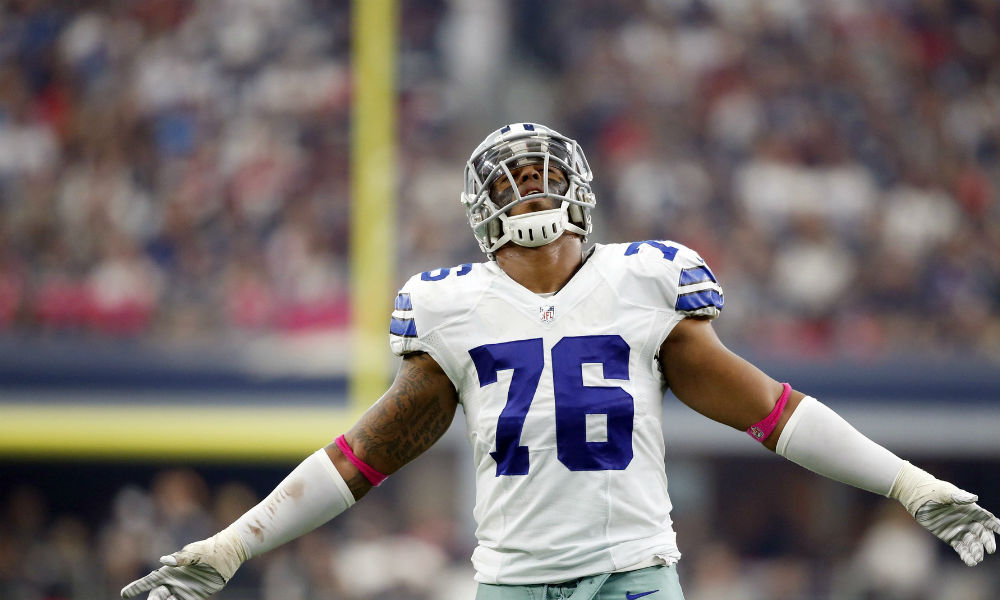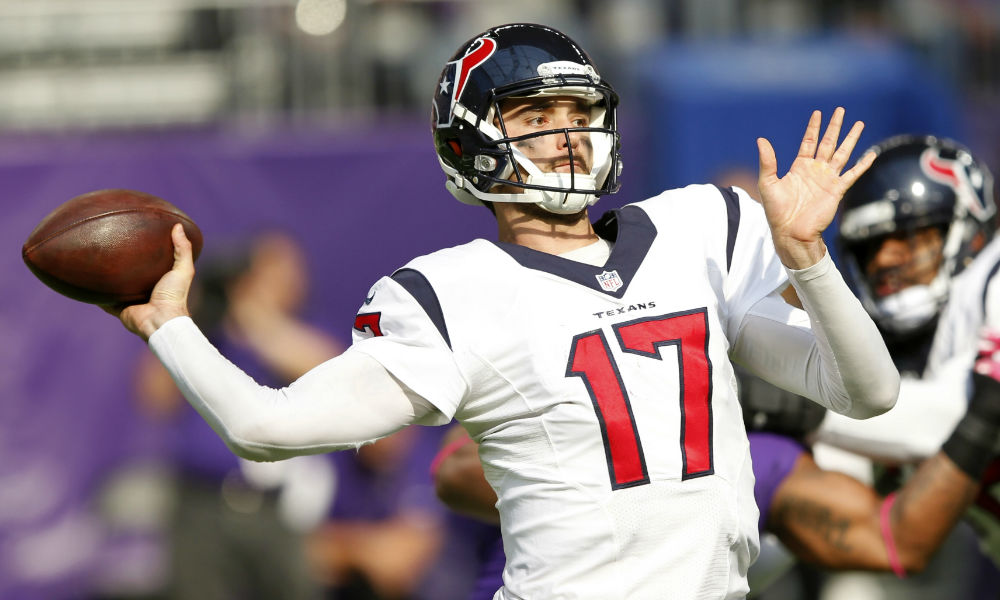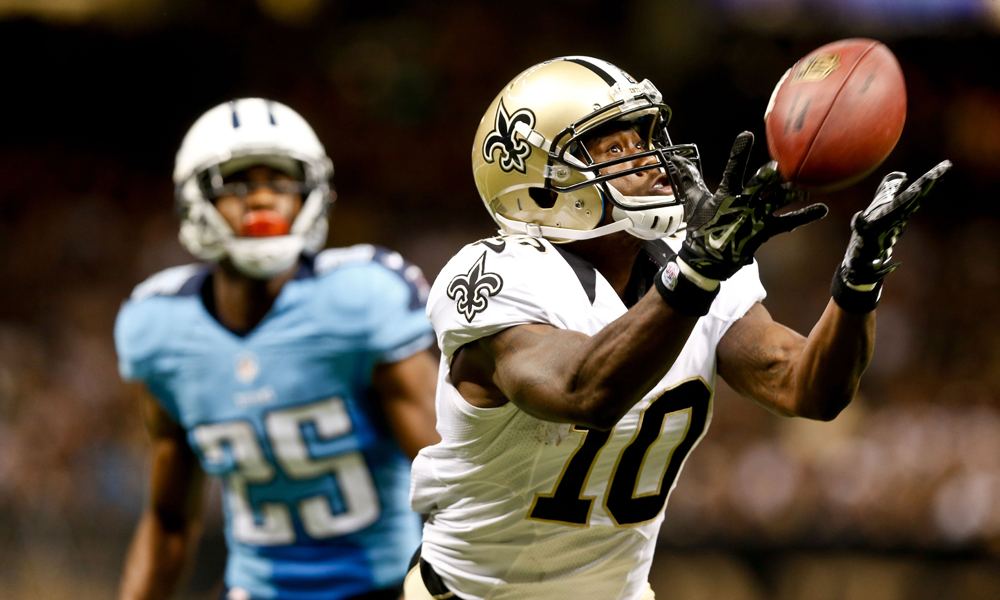News
Playing favorites: Seahawks, Patriots look like teams to beat
Seattle, the defending champion, and New England, which has reached the Super Bowl five times previously with Tom Brady at quarterback, are the top-seeded teams heading into the playoffs, but that’s not as big a deal as we once thought it was.
Recent history says it’s more important to be hot at the end of the year than to earn the top seed. But it used to be the other way around. If you’re searching for a reason for the change, don’t look past the obvious: The introduction of free agency into the NFL in the 1990s changed the dynamics.
Combine player turnover with lighter off-season work mandated by the league’s Collective Bargaining Agreement, and it takes longer for teams to coalesce than it once did. Thus, late-season results are a better predictor of playoff success than season-long excellence. (Think New England’s undefeated regular season in 2007 followed by a Super Bowl loss to a wild-card Giants team.)
In the last 20 years — not coincidentally, since the introduction of free agency to the NFL — only twice (New Orleans and Indianapolis in 2009 and Seattle and Denver in 2013) have the two top seeds made it through the playoffs to the Super Bowl.
Compare that with the 19 seasons (1975-1993) that teams were seeded based on records before the free agency era. During that stretch, the two top seeds met in the Super Bowl eight times.
Nonetheless, don’t be shocked if we are back to the future this January. The Super Bowl picks here are the two top seeds — Seattle and New England. If they make it, this would become the first time in 30 years that the two top seeds reached the Super Bowl in consecutive seasons.
Actually, the Seahawks and Patriots check both boxes — a strong season and a good late run. Seattle got hot at the right time, putting the Percy Harvin fiasco behind it and getting key players healthy to win nine of its last 10 games. New England played three of the other five AFC playoff teams this season — Denver, Indianapolis and Cincinnati — and beat them by an average of 26.7 points. The Patriots had won 10 of 11 before mailing in the season finale to Buffalo.
But in the spirit of giving everyone an equal chance, here’s a rundown of the dozen playoff teams, listed in order of expected success, with brief explanations of why each team can win it all — or can’t.
1 – Seattle.
Why the Seahawks may win: Their defense allowed more than 30 yards a game fewer than any other team in the league and permitted just two touchdown drives longer than 14 yards in the last six games. Oh, and did we happen to mention Marshawn Lynch? Or the precocious young quarterback, Russell Wilson, who plays far beyond his years?
Why the Seahawks may not win: Hard to make the case against a team with home-field advantage that has lost just twice in three years at home. But one of those was this season, to Dallas.
2. Dallas.
Why the Cowboys may win: They have the best-balanced offense among all the playoff teams, including Seattle. Tony Romo was the NFL’s highest-rated passer, DeMarco Murray won the rushing title by an obscene margin of almost 500 yards, and Dez Bryant led the league in touchdown catches. Not exactly Aikman-Smith-Irvin, but not bad. One other thing: The Cowboys went 4-0 in December, averaging 41.3 points. It was their first undefeated December since 1993, the year they won their second of three Super Bowls in a five-year period.
Why the Cowboys may not win: Romo’s big-game history can’t be forgotten just yet; he has just one playoff victory in his career. And Seattle remains a formidable obstacle, despite the Cowboys’ victory there in October. But Dallas also was the NFL’s only undefeated road team.
3. New England.
Why the Patriots may win: Learned long ago never to count out Tom Brady, who would become the first quarterback to start six Super Bowls. The AFC playoff field appears to lack the kind of dominating defense that could stop the Patriots. And New England crushed the three other AFC playoff teams it faced during the season by a combined 128-58.
Why the Patriots may not win: Brady has some serious age on him and only John Elway, the other other QB to start five Super Bowls, won the title at such an advanced age. But Elway had Terrell Davis. Brady has no one like that.
4. Green Bay.
Why the Packers may win: Aaron Rodgers simply does not make many mistakes. Their performance against Detroit’s strong run defense in the season finale was very impressive, and the Packers’ own defense has improved since linebacker Clay Matthews was moved inside.
Why the Packers may not win: Rodgers’ calf injury may linger, and the 23rd-ranked run defense may not have improved enough, a significant factor because the Packers are likely to face Dallas in their first playoff game. Also, Green Bay’s aura of postseason invincibility at Lambeau Field is only a distant memory; in two of the last three years, the Packers lost their first playoff game at home.
5. Denver.
Why the Broncos may win: By the end of the year, they showed they could win games with good running and good defense. And they still have, well, Peyton Manning. And the bye week is important for a team with a roster that includes a significant number of nicked-up players.
Why the Broncos may not win: Regular-season success means nothing when you look at Manning’s postseason history: An 11-12 won-lost record and 24 interceptions in 23 games. Plus, he is starting to show his age. This year, Manning was 2-4 in games when he threw 40 passes. A year ago, he was 8-2 in those games.
6. Pittsburgh.
Why the Steelers may win: They have the top-rated offense among all playoff teams and an excellent run defense, and they wouldn’t have to face the Patriots until the AFC championship game. The remake of the offense from Pittsburgh’s historical reliance on a strong running game appears complete with the emergence of Antonio Brown.
Why the Steelers may not win: The injury to Le’Veon Bell leaves his status uncertain for the wild-card playoff round, and there is no one else to carry the load on the ground to help protect Ben Roethlisberger, who needs a running game even though he attempted a career-high 608 passes. And Pittsburgh ranked No. 18 in defense, a very un-Steelers like rating.
7. Detroit.
Why the Lions may win: Their defense can be stifling at times, particularly against the run. And they have a couple of magnificent weapons on offense, with Calvin Johnson capable of taking over a game by himself, particularly when the defense has to concern itself also with Reggie Bush.
Why the Lions may not win: Matthew Stafford still has to show he can step up in big games; his career road record against winning teams is 0-16. And Detroit averaged only 13.6 points per game this season against teams that finished with a winning record or earned a playoff spot.
8. Cincinnati.
Why the Bengals may win: The emergence of rookie running back Jeremy Hill, who averaged 132.7 rushing yards per game in November and December, has given Cincinnati some confidence that it can go into the playoffs with a balanced offense to take pressure off quarterback Andy Dalton and the defense.
Why the Bengals may not win: In three previous playoff appearances, Dalton has thrown just one touchdown pass and six interceptions and the Bengals averaged just 11 points. They have not win a playoff game in 24 years. And they go on the road against a team that shut them out in October.
9. Indianapolis.
Why the Colts may win: When Andrew Luck takes care of the football, the Colts can score with anyone. In their first 11 games after an 0-2 start, the Colts averaged more than 32 points per game. Indy’s defense and pass rush is better than generally acknowledged and, in a tight game, Adam Vinatieri’s place-kicks can make a difference.
Why the Colts may not win: Although Indy won 11 of its last 14 games, the three losses were all to playoff teams, and they permitted an average of 45 points in those games. Last year, the Colts were torched for 87 points in two playoff games. And Luck’s 16 interceptions were the most of any playoff quarterback except Dalton, who threw 17.
10. Baltimore.
Why the Ravens may win: This is no longer the Ray Lewis-Ed Reed team, but Baltimore still is one of the most playoff experienced teams in the league. Although the Ravens missed the playoffs last season, in their run of five straight playoff years from 2008 to 2012, they won their first postseason game every time.
Why the Ravens may not win: Baltimore, which has 18 players on injured reserve, has been beset by injuries. Joe Flacco’s great run to a Super Bowl title two years ago looks more like an aberration than a trend. And a banged-up secondary is never a good thing at this time of year.
11. Carolina.
Why the Panthers may win: They were one of the league’s hottest teams at the end of the season after Cam Newton got healthy, winning their last four games. That earned them a first-round game at home against an Arizona team down to its third quarterback and showing no sign of offense.
Why the Panthers may not win: After going a full two months during the season without winning a game, Carolina might have exhausted itself just getting into the playoffs.
12. Arizona.
Why the Cardinals may win: Coach Bruce Arians has produced some magic over the last three years, so he has players believing in the team, and that’s the first part of the battle.
Why the Cardinals may not win: It’s hard to overcome a major problem at quarterback, and that’s where Arizona finds itself because of injuries. The Cardinals lack a strong running game to take up the slack, and their combined rank on offense (24th) and defense (24th) is by far the worst of any playoff team.
Ira Miller is an award-winning sportswriter who has covered the National Football League for more than three decades and is a member of the Pro Football Hall of Fame Selection Committee. He is a national columnist for The Sports Xchange.
News
Buccaneers admit mistake, boot Aguayo
Source: Mike Florio of ProFootballTalk
Powered by WPeMatico
News
Did Bucs put too much pressure on Aguayo?
Source: Mike Florio of ProFootballTalk
Powered by WPeMatico
News
Broncos holding their breath on Derek Wolfe
Source: Mike Florio of ProFootballTalk
Powered by WPeMatico




